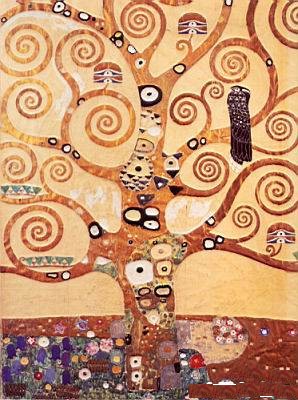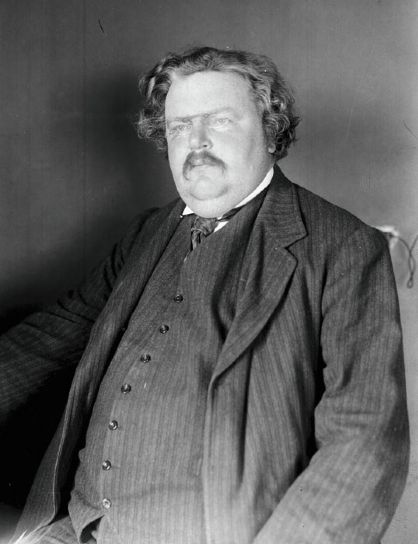Jorge Luis Borges has been, without doubt, the biggest English-language writer influenced by Gilbert Keith Chesterton , as he himself acknowledged on several occasions. This influence can be seen clearly in the style of Borges and some of the themes developed in his stories, common to both authors. It is true that the religious theme, for example, had points of view and very different treatments in each writer, but it is undeniable that the fascination by the police or the desire to achieve an artistic style of writing connects them both.
Borges thought several times about the figure and the author's work was in English but a short essay entitled "On Chesterton, written in the forties, which better addressed the issue. In this essay we read some very interesting views of the Argentine master of Chesterton.
Thus begins by contrast the detective fiction of Edgar Allan Poe with Chesterton "Every piece of Saga of Father Brown presents a mystery, offers explanations of such magical and demonic or replaced, at last, with others that are of this world. "Observation is true, since the crimes that appear in stories of sometimes presented Father Brown stories full of magic and impossible fantasies, but the good priest in charge of giving a rational explanation for what we showed to be impossible or unreasonable.
Borges was also correct to point an indisputable fact: that Chesterton is often judged by the creed that became: "[...] Catholics exalt Chesterton deny freethinkers. Like any writer who professes a creed, Chesterton is judged by it, it failed or acclaim him. "Even today many people are being tried as a Catholic, forgetting that it ever was and in many instances demonstrated an understanding and a breadth of view lacking in other authors.
Later, Borges says that the English author had resisted being classified as a creator nightmares, but it was Argentina, "asked whether a man has three eyes, or a bird three wings, speech against the pantheistic view of a dead man in paradise that the spirits of the angelic choirs have no end to his face and speaks in a prison of mirrors, speaks of a maze with no center, speaks of a man devoured by automatons of metal; speaks of a tree that eats birds and leaves instead of feathers da ... "The presence of the hazard, terrible, monstrous, is in Chesterton, Borges was very wise and knowing stands as one of hallmarks of the English genius.
Borges acknowledged Chesterton's influence on numerous occasions, even in his fiction. Thus, the famous story of "Theme of the Traitor and the Hero" begins with these words: "Under the notorious influence of Chesterton (discurridor and ornamented with elegant mysteries) [...], I imagined this argument." And the stories in the book Six Problems for Don Isidro Parodi , written in tandem, with both hands, with his close friend Adolfo Bioy Casares , can be seen the shadow of the British author, both in the style of the narrative and the arguments of the stories. Needless to say, these influences do not detract Chestertonian one iota of originality to the narrative of Argentine author.
Ultimately, as noted elsewhere Borges, Chesterton it may have been a writer like Edgar Poe or Franz Kafka , with whom he contrasts the end of that short essay, but preferred to be Chesterton and we thank them. Could be an author whose work was full of obsessive worlds, atrocious, perverse and devastating, but rather, a kind of hope or faith in the human and the divine, something strange, wonderful and always flashed conciliatory in his thoughts and his prose, and that something distinguishes it from both authors, so tormented by their ghosts.
Jorge Luis Borges unravel knew perfectly the personality and work of Chesterton, so that we can read their stories, stories he deemed immortal, even if the genre died in police- Borges the right prism. It is worth to read the works of two writers: under no circumstances leave us indifferent, because they are two masters of twentieth century fiction. The prospect of Borges's work clarifies and clears Chestertonian. Therefore, we are grateful to the Argentine as artistic genius and clearly knew how to give us his vision of Chesterton.




0 comments:
Post a Comment